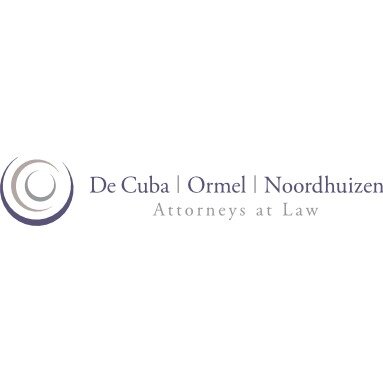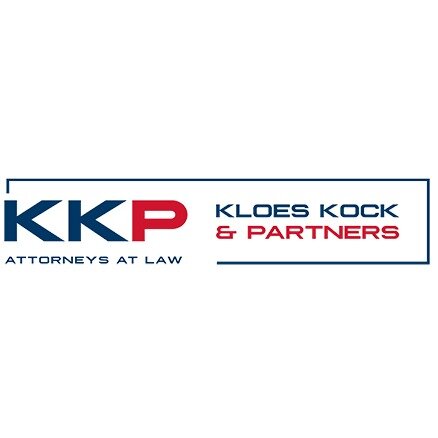Best Franchising Lawyers in Aruba
Share your needs with us, get contacted by law firms.
Free. Takes 2 min.
Or refine your search by selecting a city:
List of the best lawyers in Aruba
About Franchising Law in Aruba
Franchising is a common business model in Aruba, where a franchisor grants a franchisee the right to use its trademark, system, and support in exchange for fees and royalties. Franchising in Aruba is regulated by various laws and regulations to protect both franchisors and franchisees.
Why You May Need a Lawyer
You may need a lawyer for franchising in Aruba for various reasons, such as negotiating franchise agreements, resolving disputes between franchisors and franchisees, ensuring compliance with local laws, and protecting your rights in case of legal issues.
Local Laws Overview
In Aruba, franchising is mainly governed by the Civil Code, which outlines the rights and obligations of both franchisors and franchisees. The Code also covers issues related to intellectual property, competition law, consumer protection, and dispute resolution.
Frequently Asked Questions
1. What are the main requirements for setting up a franchise in Aruba?
Franchisors must provide a disclosure document to potential franchisees, register their trademarks, and comply with local laws and regulations.
2. Can a franchise agreement be terminated early?
Yes, a franchise agreement can be terminated early if certain conditions are met, as specified in the agreement or local laws.
3. How are franchise disputes typically resolved in Aruba?
Franchise disputes can be resolved through negotiation, mediation, arbitration, or litigation, depending on the nature of the dispute and the parties' preferences.
4. Are there specific regulations for foreign franchises operating in Aruba?
Foreign franchises operating in Aruba must comply with the same regulations as local franchises, including registration, disclosure, and intellectual property laws.
5. What are the key provisions that should be included in a franchise agreement?
A franchise agreement should include details on the franchise fees, royalties, territory rights, support from the franchisor, duration of the agreement, and termination clauses.
6. Is it necessary to register a franchise agreement in Aruba?
While registration of franchise agreements is not mandatory in Aruba, it is recommended to provide legal validity and enforceability of the agreement.
7. Can a franchisee operate multiple franchises in different locations?
Yes, a franchisee can operate multiple franchises in different locations, as long as the franchisor approves and the terms of the agreement allow for it.
8. What are the penalties for violating franchise laws in Aruba?
Violating franchise laws in Aruba can result in fines, termination of the agreement, or legal action taken by the affected party.
9. Are there any restrictions on the types of businesses that can be franchised in Aruba?
Certain industries, such as healthcare, may have specific regulations that restrict franchising, so it is important to consult with a lawyer to ensure compliance.
10. How can a lawyer help with franchising disputes in Aruba?
A lawyer can help resolve franchising disputes by providing legal advice, negotiating settlements, drafting legal documents, and representing clients in court if necessary.
Additional Resources
If you need legal assistance with franchising in Aruba, you can contact the Aruban Chamber of Commerce or consult with a local law firm specializing in commercial law and franchising.
Next Steps
If you require legal assistance with franchising in Aruba, it is crucial to consult with a qualified lawyer who can provide expert advice and guide you through the legal process. Be sure to gather all relevant documents and information before meeting with a lawyer to make the most of your consultation.
Lawzana helps you find the best lawyers and law firms in Aruba through a curated and pre-screened list of qualified legal professionals. Our platform offers rankings and detailed profiles of attorneys and law firms, allowing you to compare based on practice areas, including Franchising, experience, and client feedback.
Each profile includes a description of the firm's areas of practice, client reviews, team members and partners, year of establishment, spoken languages, office locations, contact information, social media presence, and any published articles or resources. Most firms on our platform speak English and are experienced in both local and international legal matters.
Get a quote from top-rated law firms in Aruba — quickly, securely, and without unnecessary hassle.
Disclaimer:
The information provided on this page is for general informational purposes only and does not constitute legal advice. While we strive to ensure the accuracy and relevance of the content, legal information may change over time, and interpretations of the law can vary. You should always consult with a qualified legal professional for advice specific to your situation.
We disclaim all liability for actions taken or not taken based on the content of this page. If you believe any information is incorrect or outdated, please contact us, and we will review and update it where appropriate.
Browse franchising law firms by city in Aruba
Refine your search by selecting a city.











